Travel during Ramadan is a whole different experience. Read our 12 top tips to make Ramadan travel easier for non-Muslim travellers journeying to Muslim countries and also for Muslims who will be fasting whilst travelling.
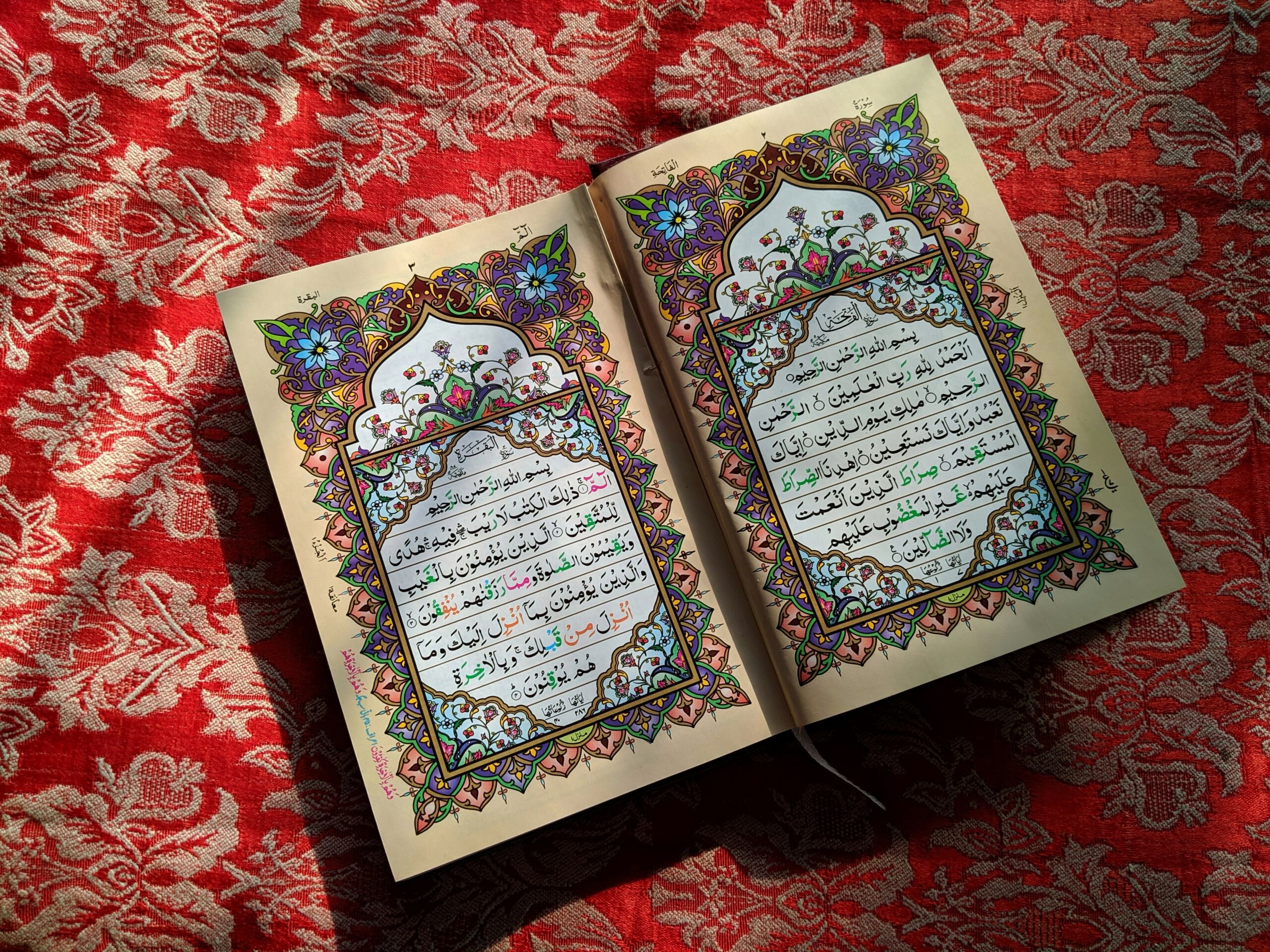
But first, What is Ramadan?
Ramadan 2023 is predicted to take place on Wednesday, March 22, 2023, and last for 30 days; however, this could vary according to the sighting of the moon.
Ramadan is an important Islamic tradition that dates back thousands of years ago. It is believed to mark the time when the Quran, the Islamic Holy Book was first revealed to the Prophet Mohammed and stands as one of the pillars of Islam.
Ramadan falls on the ninth month of the Islamic calendar and lasts for four weeks. During this sacred time, Muslims all across the globe will fast between dawn and dusk; refraining from drinking water and eating food. Fasting is meant for Muslims to empathise with the less fortunate who may be deprived of food and water, and are suffering.
As it is a holy month, it is expected that Muslims refrain from all things that are considered to be impure for the mind and body. This includes negative behaviours and habits, such as smoking, anger, violence, lust, greed, and gossiping. Instead, they are expected to engage in acts of charity, kindness, and self-reflection.
Fasting is only one of five pillars in Islam that every follower of the faith must fulfil; the other pillars include a Declaration of Faith (Shahada), Prayers (Salah), Charity (Zakat), Fasting (Sawm) and Pilgrimage (Hajj).
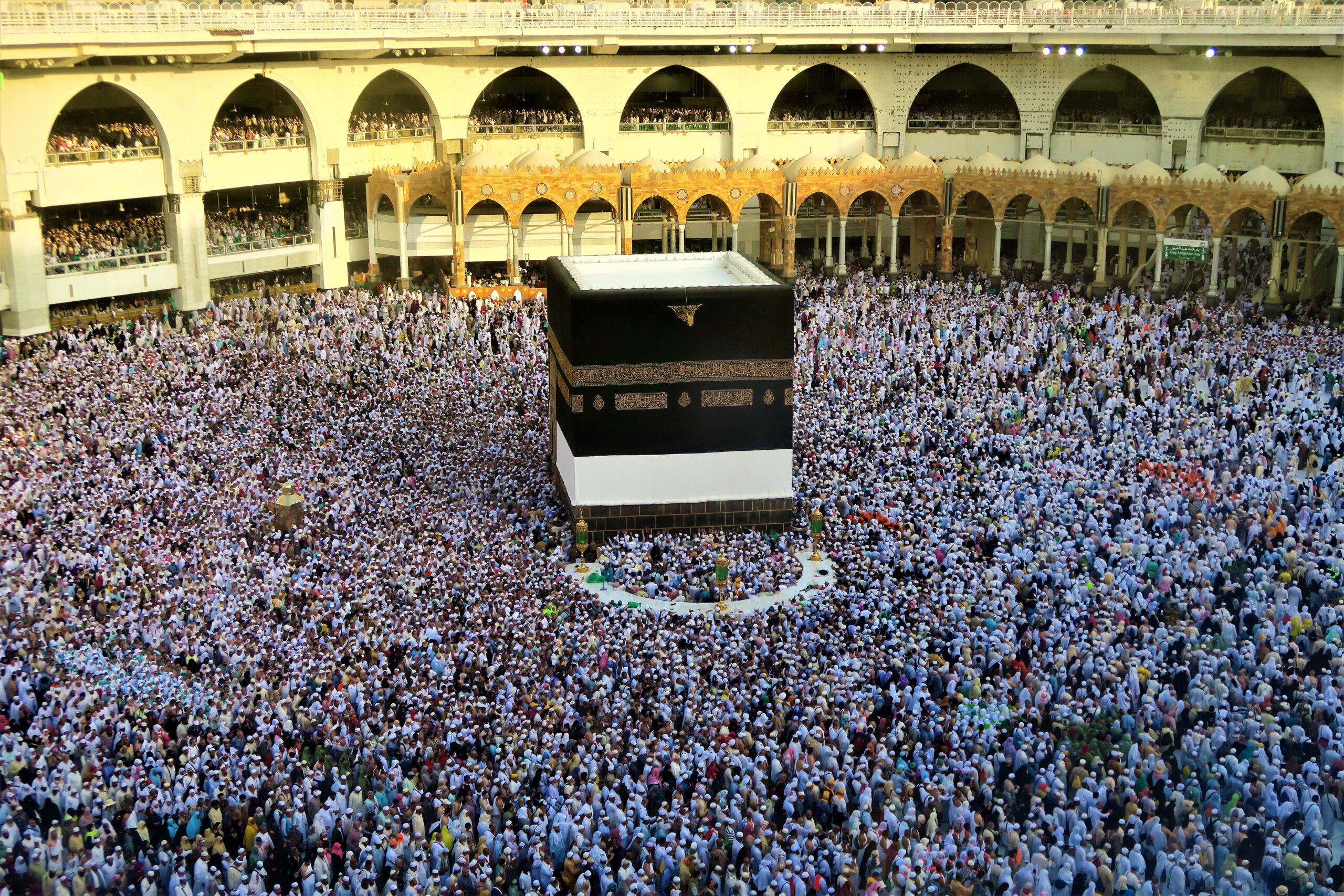


Indonesia, Malaysia, Maldives, Egypt, Turkey, Morocco, United Arab Emirates, Jordan and Saudi Arabia – are just some of the Muslim countries in our world. For non-Muslim travellers planning to visit these countries during Ramadan, it’s important to be aware of the cultural norms and customs surrounding the holy month. This may include being respectful of those who are fasting, refraining from eating, drinking, or smoking in public during daylight hours, and being mindful of dress codes and appropriate behaviour in religious spaces.
It’s also worth noting that during Ramadan, some businesses and attractions may have adjusted schedules or hours of operation, and public transportation may be more crowded during the evening hours as people gather for iftar, the breaking of the fast.
Overall, understanding the cultural significance of Ramadan and being respectful of local customs and traditions can help non-Muslim travellers have a more enjoyable and culturally immersive experience while visiting these countries during the holy month.
7 Ramadan travel tips For Those Travelling To Muslim Countries
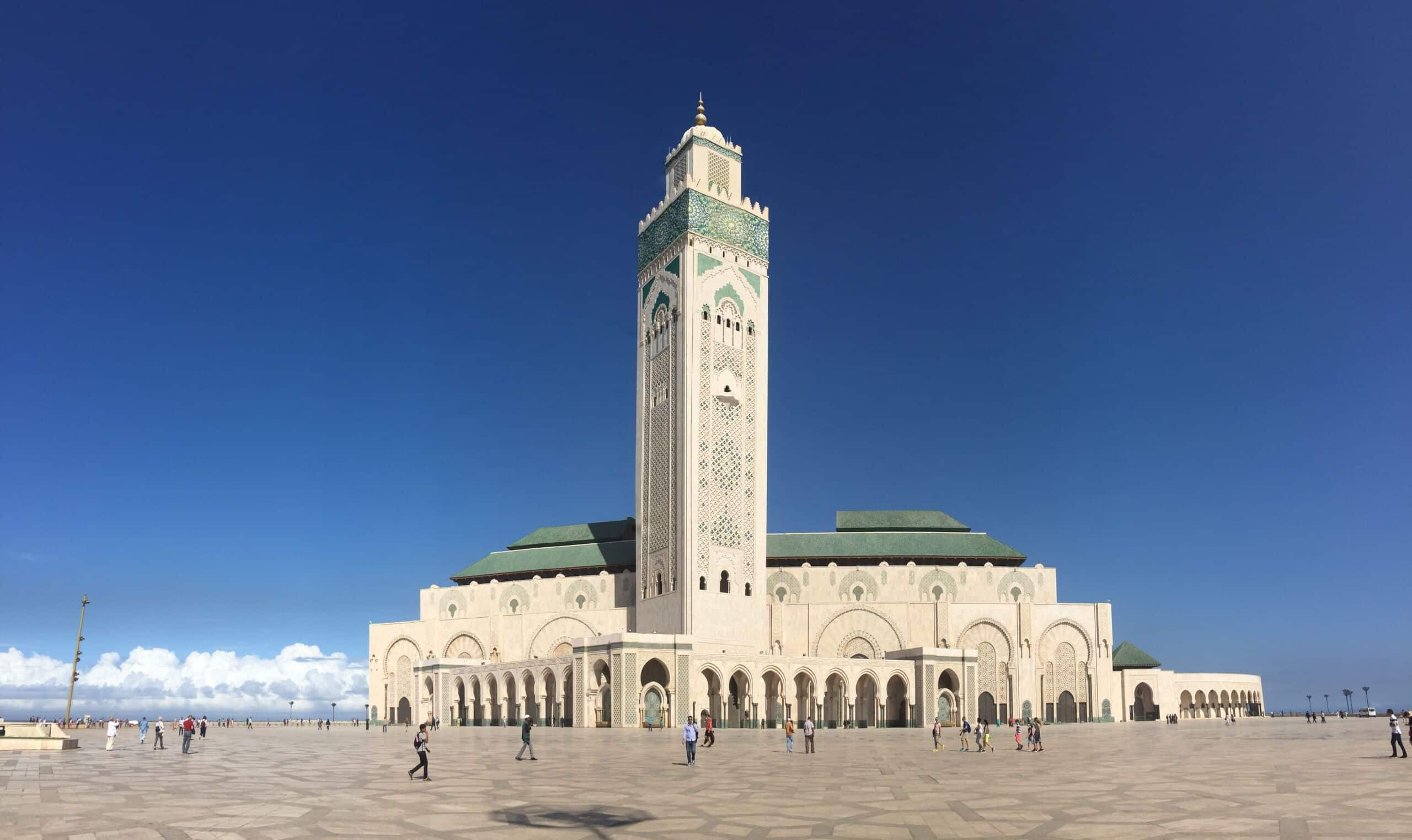


1. Be Aware That The Dates Are Subject To Change
Unlike Christmas which falls on December 25 of every year, the date of Ramadan 2023 is not set in stone and changes yearly. This is as the end and beginning of Ramadan depend on the position of the crescent moon and when it is sighted in each place around the world.
If you are in a Muslim country during Ramadan and happen to be there at the end of the four-week period, you will be lucky enough to experience Eid-Al-Fitr, or Hari Raya Puasa as we call it in Malaysia. This is a massive celebration for Muslims as it marks the end of Ramadan, and you will see streets and shopping malls come alive with decorations, dancing, music, concerts and glorious food. During Eid-Al-Fitr, you may also see concerts, parades, and other festive events taking place in public spaces. It’s a great opportunity to experience the cultural traditions and customs of the local Muslim community.
2. Be Respectful
As the saying goes “When in Rome, do as the Romans do.”
During your Ramadan travel, whilst you do not have to fast if you are not Muslim, the correct travel etiquette is to respect the sacred month. This means you should only eat at places which are designated for eating, meaning cafes and restaurants. Do not flaunt the act of eating in public places, to respect those who are fasting.
This goes for alcohol as well – you should abstain from drinking alcohol in public places for the same reasons, and have it discreetly in your hotel room.
3. Experience Muslim Hospitality



If you’re visiting friends or family during Ramadan 2023, expect to be invited to break fast, or iftar with them in the evening when the sun goes down. Families and friends will gather together, either at each other’s houses or at restaurants for an enjoyable, boisterous affair. People will usually come early and sit together to chat and wait for iftar. After prayers, most will have some dates and water to break the fast and then only start on the main dishes.
Typically, people will break their fast with a few dates and water, as this is a traditional practice of Prophet Muhammad. After this, they will typically enjoy a range of main dishes and desserts, which may vary depending on the local cuisine and traditions.
It’s also worth noting that during Ramadan, many restaurants and cafes may offer special iftar menus or buffets, which can be a great opportunity to experience local cuisine and traditions.
4. Dress Code For Ramadan Travel
Whilst there is no official dress code for travellers during Ramadan, it is highly encouraged for both men and women to dress modestly. This means you should try to cover as much of the arms and legs as possible. Consider clothing made of natural, breathable fibres such as cotton, silk or linen as that would keep you more comfortable whilst covered up.
Hijabs are head coverings and abayas are floor-length robes worn by Muslim ladies.
Non-Muslims do not have to wear one; however, it is a sign of great cultural respect if you carry a long scarf or a pashmina and wear it when appropriate. If you’re sightseeing and visiting Islamic mosques and sacred sites, you’ll find that you will need it as your hair and neck has to be covered. And if you’re visiting places like Egypt, you will find it useful to protect your hair, neck and face from the desert conditions.
5. Be aware of local laws, customs, and business hours
Read up on local laws and customs during Ramadan in Muslim countries overseas as some are stricter than others.
During Ramadan, it is common that business hours will be affected in Muslim countries. This is to allow Muslims to leave earlier so that they are back in time for iftar. Some businesses may also close during the day so that they can have a rest. So do manage your expectations when it comes to the operating hours of businesses, markets, banks and restaurants during your Ramadan travel. Monitor the timing online before heading to banks or restaurants. It is also recommended to make any necessary reservations for restaurants or tours in advance, as they may be busy during Ramadan.
Be patient, as most government facilities operate with a smaller staff during Ramadan since Muslim employees get off work early. Some Muslim-owned shops or eateries may be closed during the day and operate only after sunset or Iftar.
6. Get In The Ramadan Spirit Of Giving
Fasting during Ramadan is meant for Muslims to empathise with those who are less fortunate and who may be suffering. So it is a time for them to give thanks for the gifts they have been blessed with and to give back wherever they can to charity. They do this by donating clothing, items that are needed, money, food and services to those who are less fortunate than themselves, and to places where this help can make a difference.
For travellers, you can also get involved in the Ramadan spirit of giving; offering a tip after a meal, a hospitable stay or a great service.
7. There Will Be Sounds Of The Call To Prayer
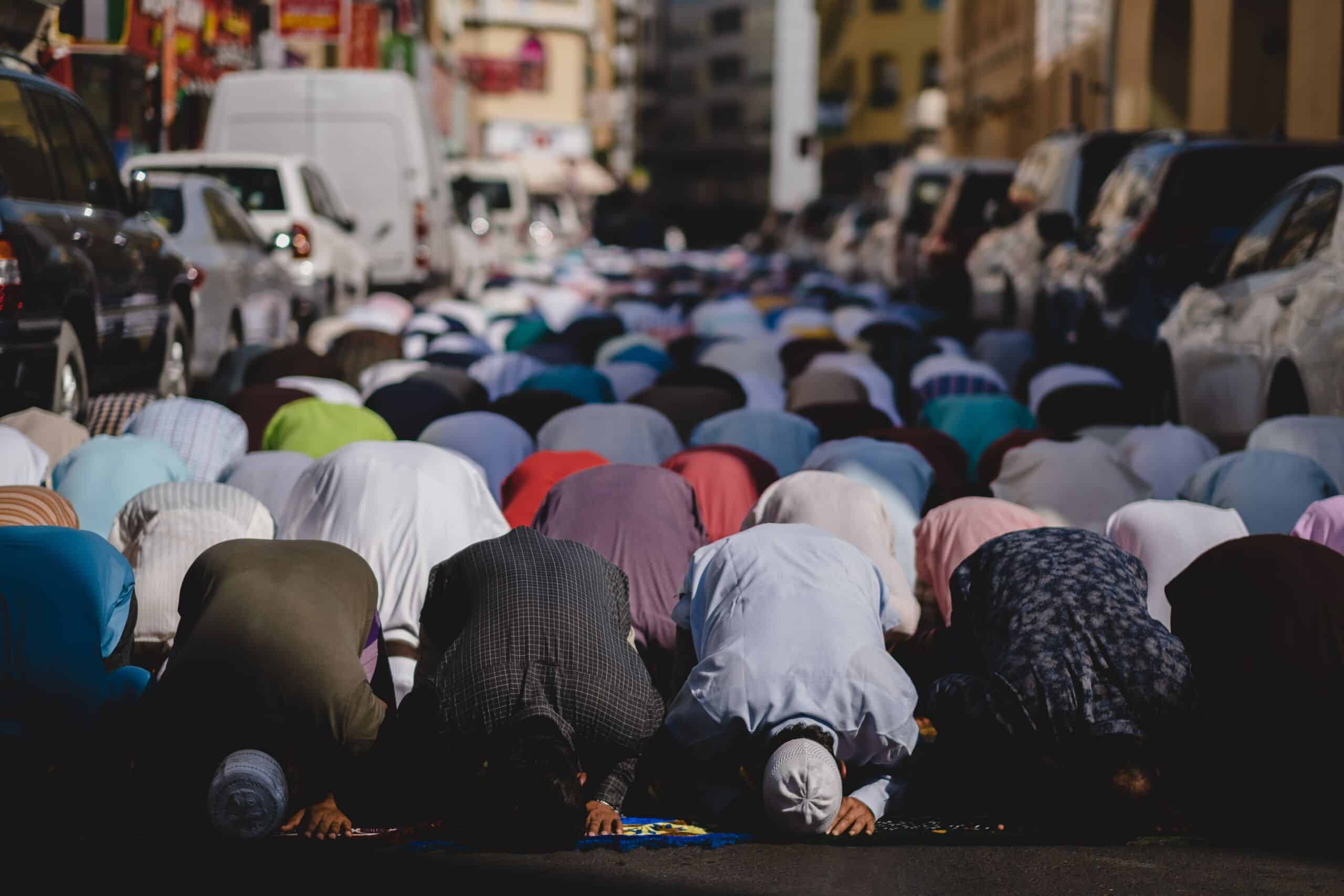


In Muslim countries, you can expect to hear the Adhan, which is the call to prayer ringing through the streets five times per day. If you are not familiar with the sound, it may take some time to adjust, but you will eventually get used to it, and may even find it calming and inspiring. Sometimes, you may also hear the sounds of canons which mark the beginning and the end of the fasting day.
8 Ramadan Travel Tips For Those Fasting while Travelling
Many Muslims may prefer to avoid travelling during Ramadan due to the physical and mental demands of fasting, as well as the importance of spending time with family and community during this time.
For this reason, they would prefer to stay close to home. Yet there can be important and unavoidable reasons to travel during this period. Here are 5 Ramadan travel tips to help be as prepared as possible.
1. To Fast Or Not To Fast?
Travellers are allowed to skip fasting during Ramadan as it can be challenging and burdensome while travelling. The Quran states that “Allah intends for you ease, and He does not want to make things difficult for you” (2:185).
On the day that you are travelling, you can begin your fast once the sun has risen and stop as soon as you are considered “travelling” – meaning that you are outside the city, town or village where your home is.
You would have to make up for the day you missed by fasting on another day outside of Ramadan.
However, if you think that you can manage to fast on your travel day, then by all means, you should. But if it becomes unbearable for you to fast, it is considered haram and your fast will not count.
2. Fasting On A Flight – how does it work?
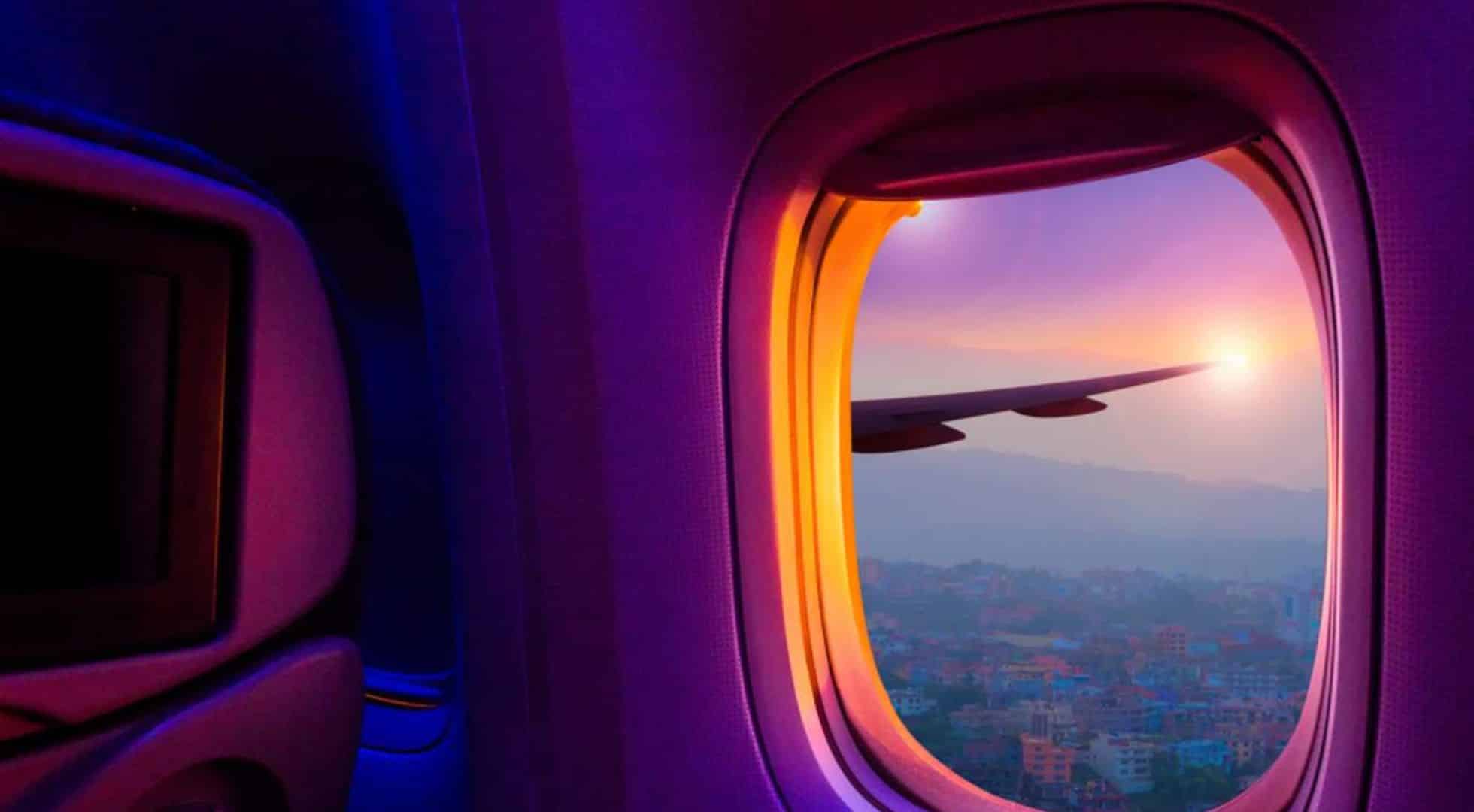


If you are fasting during a flight, the hours of your fasting are not related to the country you depart from or the country that you are going to arrive in. It is recommended that you should break your fast when you see that the sun has set.
If you can still see sunlight from your plane window, you should wait to break fast only when it is dark outside – even though it may be iftar already in the area where the plane is. Likewise, if you know that it is not yet iftar in the country you have departed from but it is already dark outside, then you should still break your fast.
If you travel on Middle Eastern airlines, the time for breaking fast will be announced by the flight captain, and you will receive some light snacks for Iftar. Even if you travel on other airlines, do not be shy to order snacks or food from the in-flight menu by tracking the time for Iftar online based on your flight location.
A good tip is to plan your journey closer to Maghrib, the sunset Islamic prayer so that you can break your fast sooner rather than later.
Did you know? For some, your Ramadan travel plans may bring you someplace with unusually long days like Iceland’s capital, Reykjavik, which clocks in around 20 hours of daylight in the summer. If that is the case, then it is recommended that you follow the fasting hours of Saudi Arabia, where Mecca is. Alternatively, you can also follow the schedule of your home country, meaning if you usually begin your fast at around 5.30 am and break fast at 7.30 pm, then stick to those hours.
3. Breaking Fast Whilst Travelling
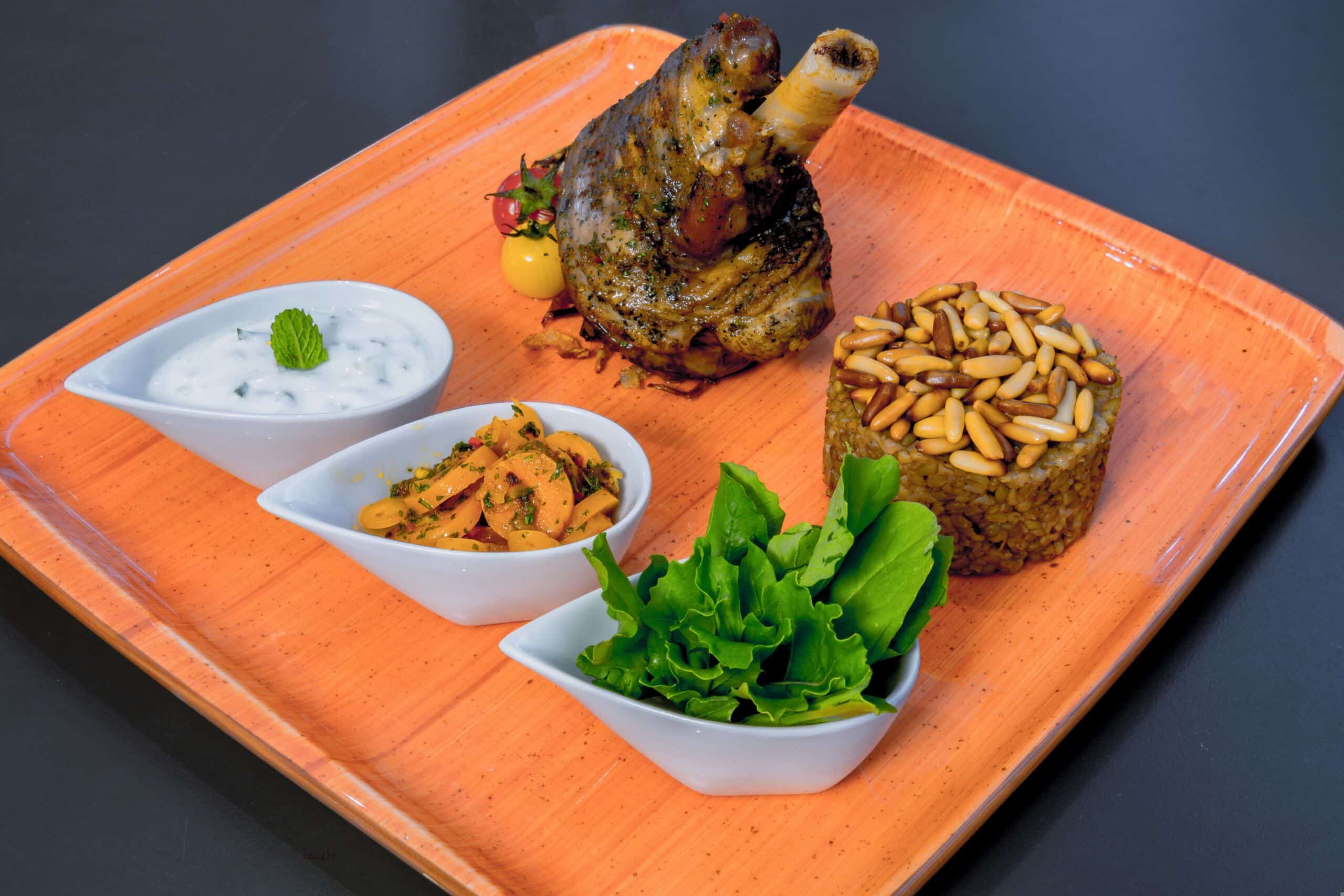


This applies whether or not you are travelling whilst fasting – it is a common practice of breaking your fast with a date, some yoghurt and water then wait for around ten minutes before consuming foods that are rich in vitamins and minerals. Medical professionals advise that the best way to break a fast is with a light, balanced meal that includes protein, complex carbohydrates, and healthy fats. Avoid sudden large intakes of sugars and fatty foods as that can disturb your metabolism and make you dizzy, causing indigestion or fatigue.
It is also recommended to stay hydrated by drinking plenty of water throughout the evening and during the non-fasting hours.
Ask any Muslim friend and they may tell you that it can be tempting to skip sahur, the meal eaten before dawn. Especially so if you’re tired from travelling. However, it is even more important to have it so that you have enough energy to get you through your day of travel. Choose wisely – you want complex carbohydrates like whole-grain bread, protein like eggs or beans and some vegetables and fruit. All these will help store and provide energy.
If you’re staying at a hotel or Airbnb, it is a good tip to stock up on food the night before, as not all accommodations provide 24-hour room service.
4. Choose the right timing for your travel
It is advisable to avoid hot and humid areas that will make you dehydrated. Travelling after Suhoor or Iftar is a good option, as you will be energized to explore popular tourist spots.
5. Stay Active, but not too active
Whilst fasting, you will naturally be less active, and you will also be eating a heavy meal just before bedtime. This makes it hard to exercise but it is still important to stay active.
However, if you are travelling, you may be staying active anyway as you may be walking around sightseeing and shopping. If this is the case, you have to be careful not to overdo it. It is also important to listen to your body and take breaks when needed, especially when travelling and sightseeing.
Generally, women who are pregnant or menstruating, the elderly, young children, breastfeeding mothers, individuals who are terminally ill, and those physically or mentally disabled are exempted from fasting. Muslim travellers exempted from fasting should avoid eating in public during Ramadan or in front of those fasting.
6. Check the fasting hours online and Don’t Skip Suhoor
You can get confused about the time for breaking fast while travelling to multiple countries. Observe your daily fast according to sunrise and sunset from your location. Check the timing online or keep a lookout for TV or radio announcements based on your location.
Raya travel destination, like South Africa, has among the shortest fasting hours, between 11 to 12 hours daily. Meanwhile, Southeast Asian destinations, like Indonesia and Singapore, have average fasting hours of 12 to 14 hours per day. In case of doubt, it is advisable to follow the fasting hours of Saudi Arabia, where Mecca is located, or your home country.
Remember to eat well during Suhoor to keep you fuelled throughout the day to explore more high-rated Raya holiday destinations.
7. research mosques, Muslim accommodations and communities In Advance
The MuslimPro app and website are helpful to determine the fasting hours and daily prayers. You can even get notified of prayer times to find a mosque nearby. In addition, do some research on mosques, Muslim-friendly accommodations, and communities to enjoy your Ramadan holiday with the local Muslim community while observing the customs of the holy month for an authentic experience.
8. Try To Keep Up With Learning
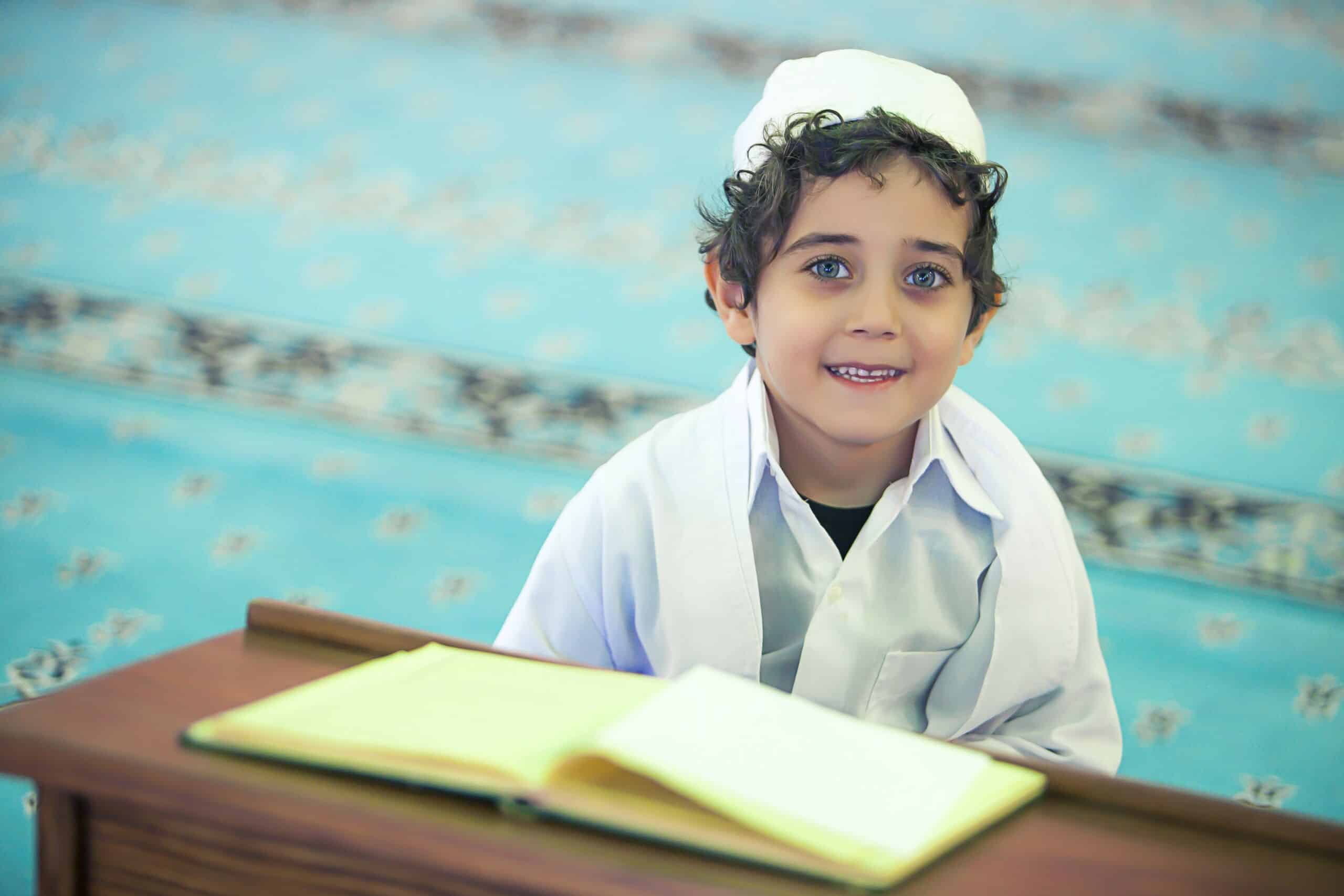


Ramadan also encourages Muslims to focus on learning more about the religion, apart from fasting and doing charitable acts.
This may pose an issue during travelling as your schedules and timings may be disrupted. However, try your best to keep up with this – set some time aside, either in the mornings before you start your day’s travels or evenings when you return. You can read the Quran, listen to podcasts or watch videos of Islamic talks on Youtube; technology is wonderful! Just do as much as. you can, and do not be hard on yourself should you miss a session.
Conclusion
Would it be a different experience travelling to a Muslim country during Ramadan?
You will notice that the cities are quieter and slower than normal during the day. However, that should not stop you from exploring these inspiring countries. Visiting countries where Ramadan is widely practised, acknowledged and celebrated will give you the special experience of getting to know the local communities, traditions and beliefs, and this will help to fortify your understanding of the world as a traveller and a person.
Overall, visiting a Muslim country during Ramadan can be a unique and rewarding experience, as long as you are respectful of the local customs and traditions.
How To Wish Someone A Happy Ramadan 2023
There are two frequently used greetings for someone observing Ramadan – ‘Ramadan Mubarak’ and ‘Ramadan Kareem’.
Ramadan Mubarak is thought to be the most well-known phrase to people outside of Islam; it directly translates to ‘blessed Ramadan’ and serves as a generic greeting.
Ramadan Kareem translates to ‘have a generous Ramadan’ and in response, you may hear the phrase ‘Allah Akram’ which means ‘God is more generous’.
These are both wonderful greetings to wish someone observing Ramadan. Both greetings are appropriate and respectful, and it’s up to personal preference which one to use.
Additionally, there are other variations of greetings depending on the language and culture, such as Ramazan Mubarak in Urdu or Selamat Berpuasa in Malay. The key is to express your well-wishes and respect for their observance during this special time.
Planning to travel during ramadan? let us help you!
REACH OUT TO US AT +603 2303 9100 OR [email protected]
You may also be interested in:
